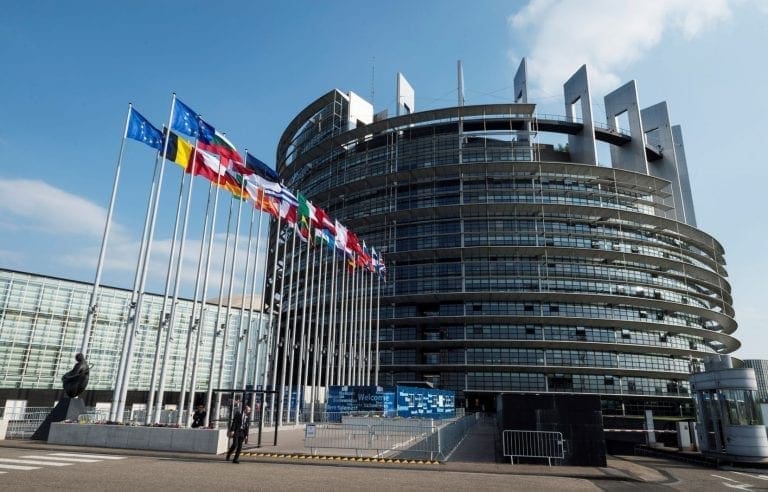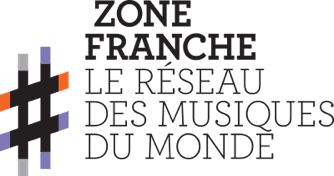With a record number of 33 electoral lists, the European elections show an optimum variety when it comes to the political landscape. While the European Union is going through an unprecedented crisis of values and a quest for meaning, we investigate the place of diversity – cultural this time – in the campaigns of the French candidates competing on 26 May. In the strictest sense, it is almost non-existent. Even down to the embodiment of projects promoted by monochrome leading candidates. But by broadening the notion of diversity to the global theme of living together, several ideas about Europe clash in a clear reaffirmation of the left-right divide as it is traditionally perceived in collective representations in terms of reception, migration, rights of asylum and freedom of movement, and global solidarity.
The obsession with border protection rallies the right wing
On the far-right of France’s political spectrum, the Front National – renamed Rassemblement National – advocates for a redefining of Europe, in particular on the grounds of “the values of civilisation, shared roots and history drawn from Greece and Ancient Rome, then Christianity”, rejecting Turkey’s integration into the EU and pushing this logic as far as “stopping legal immigration”. In return, the list drawn up by Jordan Bardella promises “an ambitious development policy with African countries,” but in a way that links “financial aid to close cooperation to control migration flows”. But it may be Nicolas Dupont-Aignan – a Debout la France candidate – who responds most clearly on this subject with an outright rejection of “multiculturalism”. As for François Asselineau’s Union Populaire Républicaine and Florian Philippot’s (the Front National party’s former number two) Les Patriotes, there is no salvation other than “Frexit”, a hypothetical French withdrawal from the European Union.
Among Les Républicains, outsider François-Xavier Bellamy places “l’Europe frontière” [“Europe-Border”] at the forefront of his project. The fight against Islamist terrorism being his secondary concern. It is not only on the issue of migration that collusion between the so-called republican right wing and that of Le Pen is clear. They both go as far as almost copying-and-pasting a call for the inclusion of “Europe’s Judeo-Christian roots in European treaties”. On the other hand, culture appears relatively highly in the catalogue of proposals, with the introduction of “1% European culture to preserve our heritage in our lands (churches, castles…)” and the defence of “linguistic diversity within European institutions”.
Culture, the poor relation of Europe?
There is no head-on anti-foreign discourse at the IDU, Union of Democrats and Independents - whose colours are worn by Jean-Christophe Lagarde - despite the obsessive anxiety for border protection. The “creation of a network and pass for European museums” is a key claim in terms of culture. For La République en Marche! and the whole of the presidential majority, it does not seem necessary to publicise the details of the Renaissance list before 9 May… On the menu: “scholarships and a series of prizes for young contemporary creativity” and the development of “cultural tourism”. After the controversy over the inclusion of her name on a far-right list while still a student, Nathalie Loiseau, a leading candidate for Macron’s party, expressed a biased “no one should enter Europe if they are not invited”.
As for the left, even if not everyone lays claim to the label, like Europe Écologie (EELV) or La France Insoumise (LFI), the tone is more about solidarity, or rather cutting ties with existing discourse about identity and security. The PS/PRG/Nouvelle donne/Place Publique coalition led by the essayist Raphaël Glucksmann – a former disciple of liberal Alain Madelin – remains tight-lipped on the issue of culture, with a timid incentive towards “intercultural dialogue”. Even if a platform of elected socialists co-signed by the leading candidates states: “Let us be the ones to proudly support emancipation, humanism, fraternity, solidarity and poetry in political discourse, because it is these principles that are essential when it comes to giving full meaning to the construction of Europe.” Christian Benedetti – leading figure in theatre and La France Insoumise candidate – responds to this statement by specifying the stance of the list led by Manon Aubry, whose campaign stresses a “cultural and educational ambition”. “Europe needs all its creative powers to bring a political life into existence. We must place the making of art and what is known as culture at the centre of European politics. But for that, and for everything else, we must shed the liberal straitjacket of current European treaties”, writes the stage director.
The Mediterranean migrant tragedy rallies the left wing
For the Génération.s party – whose list Vive l’Europe libre is led by Benoit Hamon – cultural ambitions lie in a rejection of the “privatisation” of the sector, which will have to be given “European public funding for creativity and heritage”. The most innovative proposals include “European Houses of Culture”, “a European status for cultural professions” and “the restitution of all works looted from former colonies to their countries of origin”. The former 2017 French presidential candidate demands an “end to support for the removal of people intercepted within the world’s deadliest maritime areas” by creating “an independent search and rescue agency”. This humanist focus can be found in the programme put forward by the EELV MEP Yannick Jadot. Entitled “Bien vivre” [Living Well], his list contains a significant chapter on cultural rights. “At a time of threats to identity, intolerance and a fear the Other, environmentalists are keen to make culture a source of social cohesion, an expression of diversity and creativity, experience of otherness, for sharing values, friendship, goals and enjoyment”.
In Ian Brossat’s programme – top of the “Pour une Europe des gens, pas de l’argent” [For a Europe of people, not money] list – one sentence clearly sums up the state of mind of the PCF - French Communist Party: “A knowledge of the culture of others is a key factor in bringing people together”. It also suggests “a public service that guarantees the cultural rights of citizens and artists”. As a reaction to the repeated tragic events in the Mediterranean, the PCF wants the European Union to redirect “Frontex towards maritime rescues”, “humanitarian visas to be issued closer to vulnerable areas” as well as the widening of “refugee status to all those who are forced into exile”, the organisation of “legal and secure channels” and “the right to mobility for all”.
On the far-left, Lutte Ouvrière and its candidate Nathalie Arthaud, there is no mention of culture but a slogan that could not be clearer: “À bas l’Europe-forteresse !” [Down with Fortress Europe!]. For Arlette Laguiller’s successor, “all major economic powers were built not only on colonial plunder but also thanks to the work of generations of migrants”. A cutting analysis worthy of consideration.


